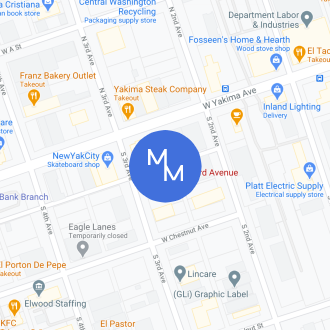Imagine this scenario: You and your family are driving home from the movies on a Saturday when a drunk driver crosses the center line and hits your vehicle head-on. Although you and your family survive the collision, you have all suffered serious injuries from the car accident. The driver of the vehicle who hit you was pronounced dead at the scene. Where does that leave you from a legal standpoint? Can you get compensation for your injuries when the responsible party is deceased?
The answer is that you can pursue compensation; however, you must follow a path that differs from the process you would follow if the driver had lived.
Suing the Estate of a Decedent
Whena person dies, his or her estate usually passes through a legal process known as probate. Through probate, a decedent’s assets are inventoried and valued, creditors and debts are paid, and any remaining property is transferred to beneficiaries or heirs.
Depending on the complexity and value of the decedent’s estate, probate can take a few months or drag on for years. If the decedent left a will, the person who is appointed to oversee the probate process is referred to as the executor. If there is no will, the court appoints a personal representative to fulfill that role. The executor or personal representative notifies all potential creditors that the estate is being probated. As a victim of a personal injury accident you are a potential creditor of the estate.
Protecting Your Claim
Probate has strict rules and deadlines that apply to all parts of the process, including creditor claims. The executor or personal representative is required to notify you of the probate process if he or she is aware that you have a claim against the estate. However, you cannot count on receiving notification. You must file the appropriate legal documents with the probate court prior to the deadline in order to protect your rights to compensation for your injuries or loss. Failing to meet the probate court deadlines will likely mean losing your right to compensation from the decedent’s estate.
Dividing Assets
Once you have filed a timely claim, a decision will still need to be made that the decedent was negligent and that you are legally entitled to compensation. If the decedent had insurance at the time of the accident, you may receive an insurance payment. But if the decedent did not have insurance or if your damages exceeded the amount of insurance coverage, then assets from the decedent’s estate may be available.
The probate court will consider all of the creditor claims that have been filed against the estate. Some claims have a higher priority than others. For example, a secured creditor gets priority over an unsecured creditor. The assets of the decedent will be used to pay claims against the estate, including your claim. In some cases, there are not enough assets to pay all of the creditors. In this case, your attorney will make every effort to get as much compensation as possible from the estate, but there may not be enough assets to pay your entire claim.
Contact a Yakima Area Personal Injury Lawyer
If you have been injured in a Yakima area accident and the responsible party is deceased, you may nevertheless be entitled to compensation for your injuries. The Washington State personal injury attorneys at Mariano Morales Law can help. Contact the team today by calling (509) 853-2222 or by using our online contact form for your free initial consultation.


